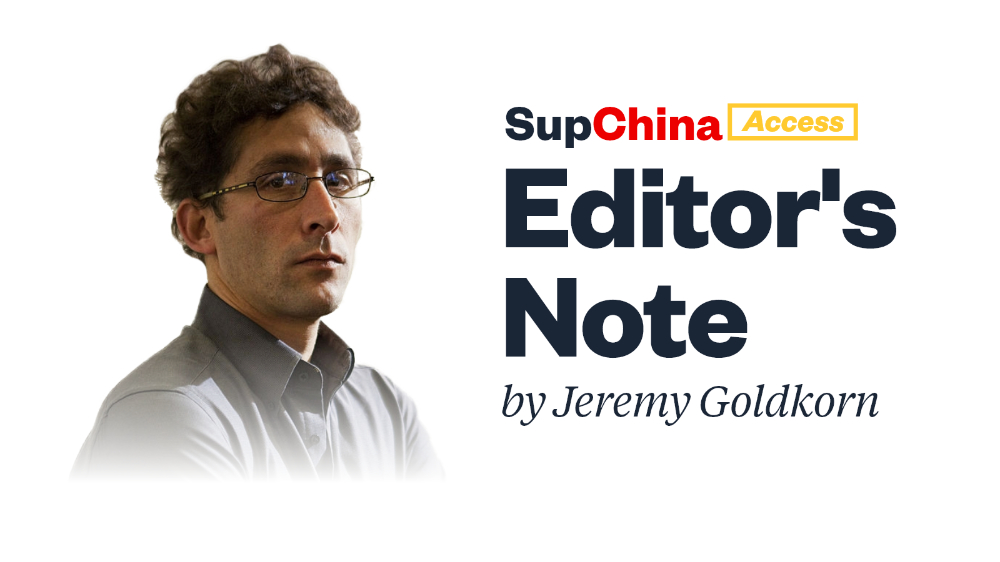Editor’s note for Tuesday, April 20, 2021
A note from the editor of today's The China Project Access newsletter.

My thoughts today:
Xí Jìnpíng 习近平 yesterday visited the prestigious Tsinghua University, where he urged Chinese universities to “produce inquisitive thinkers who are totally loyal to the Communist Party.”
Today he gave a speech via video (in Chinese here) at the Boao Forum for Asia (BFA), China’s annual geopolitical schmoozefest and influence operation that takes place on Hainan Island. Foreign guests of note included Apple’s Tim Cook, Tesla’s Elon Musk, Blackstone’s Stephen Schwarzman, and Bridgewater’s Ray Dalio.
Xi’s main points seemed aimed at the U.S. and at distinguishing China’s approach to superpowerdom from America’s:
We must not let the rules set by one or a few countries be imposed on others, or allow unilateralism pursued by certain countries to set the pace for the whole world. What we need in today’s world is justice, not hegemony…
However strong it may grow, China will never seek hegemony, expansion, or a sphere of influence. Nor will China ever engage in an arms race.
Meanwhile, as we noted yesterday, an essay by former premier Wēn Jiābǎo 温家宝 was published last week on page B2 of an obscure newspaper in Macao (in Chinese). It was, per CNN, “ostensibly a tribute to his late mother, [but is] what many have interpreted as a coded criticism of Xi: calling for fairness, justice, humanity and liberty, all while remembering a period of history the Communist Party would rather forget.”
The essay was shared on Chinese social media before being censored (in Chinese), leading to even more speculation about Wen’s motives and what it all means.
My take: Don’t get too excited about Wen Jiabao. He has a history of issuing liberal-sounding statements that may be intended to hedge his place in history, but don’t really mean a lot. Even when he actually held a position of real power, Wen was fond of making speeches that seemed to indicate a politically reformist bent, but resulted in nothing. And he was much more powerful than Lǐ Kèqiáng 李克强, the man who now has Wen’s old job, but really just gets to play Xi’s chief lackey.
Two examples of Wen’s honeyed words while he was China’s second most powerful man:
- In 2008, CNN host Fareed Zakaria interviewed Wen and asked him about democracy and the lessons of 1989. Wen answered that China needed to “gradually improve the democratic election system…build an independent and just judicial system…[and subject the government] to oversight by the people…And particularly…oversight by the news media.”
- In 2009, Wen said, “I have always believed that the public has the right to know what its government is doing and thinking about, and the right to criticize and make comments on government policies.”
And what about the mother that provides the reason for Wen’s essay? She is Yáng Zhìyún 杨志云, who according to a 2012 New York Times investigation by David Barboza “became outright rich” while her son was premier.
Our words of the day are phrases from Xi’s Boao speech:
The world wants justice, not hegemony…China will never seek / proclaim hegemony
世界要公道,不要霸道…中国永远不称霸
shìjiè yào gōngdào, bú yào bàdào…zhōngguó yǒngyuǎn bù chēngbà
—Jeremy Goldkorn, Editor-in-Chief






